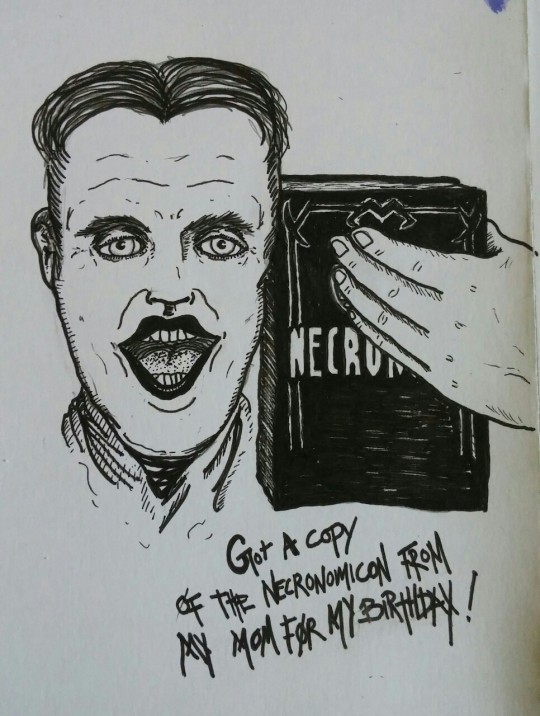Text
My home and studio has burned down
Hi all, my home and studio out of which I worked has burned down. The building housed roughly 8 people, all of whom used the spaces as art studios, rehearsal spaces and recording studios. Tens of thousands of dollars worth of equipment and gear was lost and we are all currently homeless and slowly rebuilding our lives. If you can, please donate to our GoFundMe. Any and all support is greatly appreciated, thank you!: https://www.gofundme.com/27pkm78
4 notes
·
View notes
Text
i’m putting more stuff on instagram these days: https://www.instagram.com/k33t_l4mb/
2 notes
·
View notes
Video
0 notes
Photo

Sun Allergy
3 notes
·
View notes
Audio
My new ambient/drone album is now available for download on Lithograph Records: Post-Sustainability by Kit Lamb
8 notes
·
View notes
Text
“Each individual is the entire single line of humanity up through himself.”
—F. Nietzsche, Twilight of the Idols, “Skirmishes of an Untimely Man,” §33 (excerpt).
152 notes
·
View notes
Text
Nietzsche’s ‘Euphorion’ fragment, written at the age of 18. (as quoted from Klossowski’s ‘Nietzsche and the Vicious Circle’)
A flow of tender and soothing harmonies ride the waves of my soul – what then has made it so bitter? Ah, to weep and then die! Then nothing! Lifeless – my hand is trembling....
The mottled nuances of the early-morning reddening play on the sky, a daily fireworks that bores me. My eyes sparkle with another passion, at the risk, I fear, of piercing the celestial vault. Here I am, I feel totally exposed, I know myself right through – but if only I could find the head of my double! To dissect his brain or my own childhood head with golden curls … ah … twenty years ago … childhood … what a strange word rings in my ear. Have I myself, then, also been fashioned in every respect by the old, rusty mechanism of the world? Me – the winch of the mill – who henceforth winds and unwinds, comfortably, and slowly, the rope we call fatum – until the knacker buries me and some bluebottles secure me a little immortality.
At this thought, I almost feel like laughing – however, another idea is bothering me – perhaps little flowers will then sprout from my bones, maybe a 'tender violet' or even – at which point, by chance, the knacker will satisfy his needs on my tomb – a forget-me-not. Then lovers will come.... How disgusting! What rot! While I thus wallow in similar thoughts of the future – for it seems more agreeable for me to corrupt myself under the humid earth than to vegetate under the blue sky, more pleasant to slither like a fat little worm than to be a man – wandering question mark – what always worries me is to see people strolling in the streets, flirtatious, delicate, happy. What are they? whited sepulchres, as some Jew said in times past. – In my room, the silence of death – only my pen scratches away at the paper – for I like to think while writing, since we have not yet invented a machine that could reproduce our unexpressed and unwritten thoughts on some sort of material. In front of me, an inkwell to drown my black heart in, a pair of scissors to seer my neck, manuscripts to wipe me with, and a chamberpot.
Opposite me lives a nun, whom I visit from time to time to enjoy her decency. I know her very well, from head to toe, better than I know myself. She was once a thin, skinny nun – I was a doctor, and made sure she soon got fat. Her brother lives with her. They got married just in time. He was too fat and flourishing for me; I've made him lean – as a corpse. He will die shortly – which pleases me, for I will dissect him. But first I will write the story of my life, for, apart from its intrinsic interest, it is also instructive in the art of making people age quickly, of which I am a master. Who is to read it? My doubles. There are still plenty of them wandering in this vale of sorrows.
Here Euphorion leaned back slightly and groaned, for he had a consumptive disease in the marrow of his spine.
1 note
·
View note
Text
I play so many silly tricks with myself, and have such extraordinary clownish notions in private, that I occasionally grin–I know of no other word–upon the open street for half an hour at a time.
Nietzsche, letter to Köselitz, November 1888
11 notes
·
View notes
Text
(Sec 552)
Against determinism and teleology.- From the fact that something ensues regularly and ensues calculably, it does not follow that it ensues necessarily. That a quantum of force determines and conducts itself in every particular case in one way and manner does not make it into an “unfree will.” “Mechanical necessity” is not a fact: it is we who first interpreted it into events. We have interpreted the formulatable character of events as the consequence of a necessity that rules over events. But from the fact that I do a certain thing, it by no means follows that I am compelled to do it. Compulsion in things certainly cannot be demonstrated: the rule proves only that one and the same event is not another event as well. Only because we have introduced subjects, “doers,” into things does it appear that all events are the consequences of compulsion exerted upon subjects—exerted by whom? again by a “doer.” Cause and effect-a dangerous concept so long as one thinks of something that causes and something upon which an effect is produced.
a. Necessity is not a fact but an interpretation .
b. When one has grasped that the “subject” is not something that creates effects, but only a fiction, much follows. It is only after the model of the subject that we have invented the reality of things and projected them into the medley of sensations. If we no longer believe in the effective subject, then belief also disappears in effective things, in reciprocation, cause and effect between those phenomena that we call things. There also disappears, of course, the world of effective atoms: the assumption of which always depended on the supposition that one needed subjects. At last, the “thing-in-itself” also disappears, because this is fundamentally the conception of a “subject-in-itself.” But we have grasped that the subject is a fiction. The antithesis “thing-in-itself” and “appearance” is untenable; with that, however, the concept “appearance” also disappears.
c. If we give up the effective subject, we also give up the object upon which effects are produced. Duration, identity with itself, being are inherent neither in that which is called subject nor in that which is called object: they are complexes of events apparently durable in comparison with other complexes-e.g., through the difference in tempo of the event (rest-motion, firm -loose: opposites that do not exist in themselves and that actually express only variations in degree that from a certain perspective appear to be opposites. There are no opposites: only from those of logic do we derive the concept of opposites-and falsely transfer it to things).
d. If we give up the concept “subject” and “object,” then also the concept “substance” -and as a consequence also the various modifications of it, e.g., “matter,” “spirit,” and other hypothetical entities, “the eternity and immutability of matter,” etc. We have got rid of materiality .
From the standpoint of morality, the world is false. But to the extent that morality itself is a part of this world, morality is false. Will to truth is a making firm, a making true and durable, an abolition of the false character of things, a reinterpretation of it into beings. “Truth” is therefore not something there, that might be found or discovered-but something that must be created and that gives a name to a process, or rather to a will to overcome that has in itself no end-introducing truth, as a processus in infinitum, an active determining—not a becoming conscious of something that is in itself firm and determined. It is a word for the “will to power.” Life is founded upon the premise of a belief in enduring and regularly recurring things; the more powerful life is, the wider must be the knowable world to which we, as it were, attribute being. Logicizing, rationalizing, systematizing as expedients of life. Man projects his drive to truth, his “goal” in a certain sense, outside himself as a world that has being, as a metaphysical world, as a “thing-in-itself,” as a world already in existence. His needs as creator invent the world upon which he works, anticipate it; this anticipation (this “belief” in truth) is his support.
All events, all motion, all becoming, as a determination of degrees and relations of force, as a struggle–
As soon as we imagine someone who is responsible for our being thus and thus, etc. (God, nature), and therefore attribute to him the intention that we should exist and be happy or wretched, we corrupt for ourselves the innocence of becoming. We then have someone who wants to achieve something through us and with us.
The “‘welfare of the individual” is just as imaginary as the “welfare of the species”: the former is not sacrificed to the latter, species viewed from a distance is just as transient as the individual. “Preservation of the species” is only a consequence of the growth of the species, i.e., the. overcoming of the species on the road to a stronger type.
[Theses.-] That the apparent “purposiveness” (“that purposiveness which endlessly surpasses all the arts of man”) is merely the consequence of the will to power manifest in all events; that becoming stronger involves an ordering process which looks like a sketchy purposiveness; that apparent ends are not intentional but, as soon as dominion is established over a lesser power and the latter operates as a function of the greater power, an order of rank, of organization is bound to produce the appearance of an order of means and ends.
Against apparent “necessity”:
-this is only an expression for the fact that a force is not also something else.
Against apparent “purposiveness”:
-the latter only an expression for an order of spheres of power and their interplay.
1 note
·
View note







